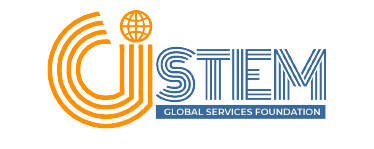Publication Ethics
Publication Ethics Statement:
Ci-STEM Journal of Digital Technologies and Expert Systems is committed to publish high quality of the research works in the areas of, Social Sciences and Management Research. For all parties involved in the act of publishing (the author, the journal editor(s), the peer reviewer and the publisher) it is necessary to agree upon standards of expected ethical behavior. The ethics statements for our journal are based on the Committee on Publication Ethics (COPE) Best Practice Guidelines for Journal Editors
Authors’ responsibilities
1. Authors must certify that their manuscripts are their original work.
2. Authors must certify that the manuscript has not previously been published elsewhere.
3. Authors must certify that the manuscript is not currently being considered for publication elsewhere.
4. Authors must participate in the peer review process.
5. Authors are obliged to provide retractions or corrections of mistakes.
6. All Authors mentioned in the paper must have significantly contributed to the research.
7. Authors must state that all data in the paper are real and authentic.
8. Authors must notify the Editors of any conflicts of interest.
9. Authors must identify all sources used in the creation of their manuscript.
10. Authors must report any errors they discover in their published paper to the Editors.
Editors’ responsibilities
1. Editors have complete responsibility and authority to reject/accept an article.
2. Editors are responsible for the contents and overall quality of the publication.
3. Editors should always consider the needs of the authors and the readers when attempting to improve the publication.
4. Editors should guarantee the quality of the papers and the integrity of the academic record.
5. Editors should publish errata pages or make corrections when needed.
6. Editors should have a clear picture of a research’s funding sources.
7. Editors should base their decisions solely on the papers’ importance, originality, clarity, and relevance to publication’s scope.
8. Editors should not reverse their decisions nor overturn the ones of previous editors without serious reason.
9. Editors should ensure that all research material they publish conforms to internationally accepted ethical guidelines.
10. Editors should only accept a paper when reasonably certain.
11. Editors should act if they suspect misconduct, whether a paper is published or unpublished, and make all reasonable attempts to persist in obtaining a resolution to the problem.
12. Editors should not reject papers based on suspicions; they should have proof of misconduct.
13. Editors should also call to the Editor in Chief’s attention any substantial similarity or overlap between the manuscript under consideration and any other published paper of which they have personal knowledge.
14. Editors should not allow any conflicts of interest between staff, authors, and editor board members.
15. Editors should keep all information regarding papers confidential and treat them as privileged information.
16. Editors should express their views clearly with supporting arguments, with no personal criticism of the author.
17. Editors should identify relevant published work that has not been cited by the authors.
18. Editors should not review manuscripts in which they have conflicts of interest resulting from competitive, collaborative, or other relationships or connections with any of the authors, companies, or institutions connected to the papers.
Reviewers' responsibilities
1. Must disclose any competing interest before agreeing to review a submission.
2. Can refuse to review any submission due to a conflict of interest or inadequate knowledge.
3. Review all submissions objectively, fairly and professionally.
4. Reveal any ethical misconduct encountered while reviewing to the Chief Editor for further action.
5. Should ensure the originality of a submission and be alert to any plagiarism and redundant publication.
6. Must not discuss the content of the submission without permission.
7. Adhere to the time allocated for the review process. Requests for extension to review the submission are at the discretion of the Chief Editor.
Publishers’ Responsibilities
1. CJDTES is committed to work with journal editors, defining clearly their relevant roles, in order to ensure appropriate decisions regarding publication procedures and maintaining the transparency of editorial decisions.
2. CJDTES ensures the integrity autonomy and originality of each published article with respect to:
a) Publication and research funding’s
b) Publication ethics and rectitude
c) Conflicts of interest
d) Confidentiality
e) Authorship
f) Article modifications
g) Timely publication of content

